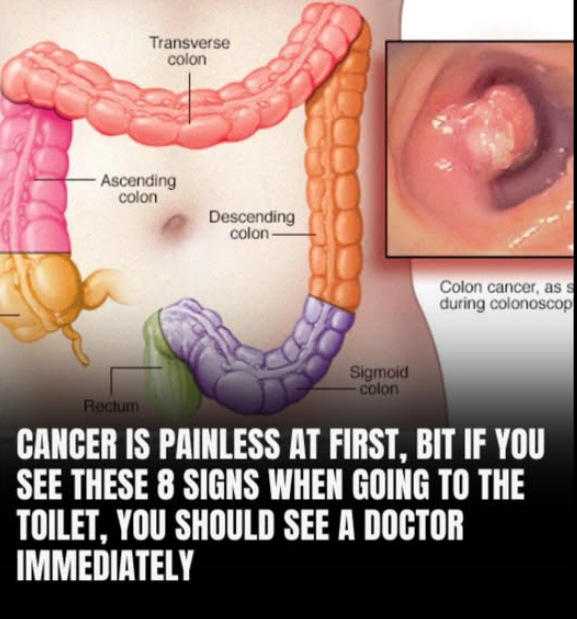used to think that only major symptoms were a cause for concern when it came to colon cancer, but as I dug deeper into the connection between poop and this disease, I realized that even subtle changes in your stool can serve as early warning signs. Things like blood in your stool, shifts in consistency, or even changes in how often you need to use the bathroom can sometimes point to a serious issue, like colon cancer. Of course, these signs don’t always mean you have cancer, as other digestive disorders can cause similar symptoms. But knowing what to look for can help you recognize when it’s time to consult a healthcare professional.

Early Indicators of Colon Cancer Through Poop
One of the first signs that something might be wrong is a change in your typical bathroom habits. You might notice thinner stools, changes in color, or a feeling that you’re not fully emptying your bowels. Though these signals might seem minor, they can be important:
- Narrow “pencil” stools: This can occur when a tumor starts narrowing the intestinal passage.
- Pain with defecation (dyschezia): Often linked to rectal cancer.
- Unable to empty the bowel (tenesmus): A common sign of early-stage rectal cancer.
- Rectal bleeding: More common with tumors in the lower bowel.
- Abdominal pain: Caused by inflammation irritating pain receptors.
- Fatigue: Often a result of anemia due to internal blood loss.
Changes in Poop as Colon Cancer Progresses
By stage three, colon cancer might have spread to nearby lymph nodes, and changes in bowel movements could become more noticeable as the tumor grows deeper into the tissues of the intestines:
- Constipation: Partial blockages can slow down bowel movements.
- Diarrhea: Fluids may bypass a blockage, leading to loose stools.
- Alternating constipation and diarrhea: This pattern is a common warning sign of something more serious.
- Blood in stool (hematochezia): Blood can range from bright red to dark, depending on where the tumor is located.
- Tenesmus: This feeling of incomplete evacuation becomes worse as the tumor and inflammation progress.
- Abdominal bloating and cramps: Gas buildup can’t pass easily if the bowel is narrowed.
- Iron deficiency anemia symptoms: About half of people with colon cancer develop anemia.
As the tumor grows, scar tissue and strictures can form, leading to partial or complete blockages. Even if you don’t notice visible blood in your stool, it can still be occurring inside the body.
Poop Changes in Advanced Colon Cancer
At stage four, colon cancer has typically spread to distant organs. This can cause a significant increase in obstruction and bleeding, making the symptoms more noticeable. If the tumor is on the right side of the colon, your stool may turn dark and sticky (melena), as the blood mixes with oxygen and hemoglobin during its longer journey through the intestines.
- Nausea and vomiting: Common when the blockage becomes severe.
- Unexplained weight loss: Chronic inflammation can reduce appetite and lead to muscle loss.
At this stage, the bowel wall may become weakened, possibly leading to perforations. If the cancer spreads to other organs like the liver, lungs, or bones, additional symptoms might appear. Surprisingly, some people with advanced colon cancer don’t experience many bowel-related symptoms if there’s no obstruction or bleeding.
Key Takeaways
I’ve learned that it’s important to pay attention to changes in your bathroom habits, because even small shifts in your stool could be an early alarm. Blood in the stool, narrower stools, diarrhea, or more frequent bathroom trips can all indicate trouble—especially if they persist. But keep in mind that these changes can also be caused by other gastrointestinal conditions, so don’t immediately assume the worst. If you notice anything unusual, it’s best to talk to a healthcare provider. Colon cancer is much more treatable when caught early.
Please SHARE this article with your friends and family on Facebook to help raise awareness.